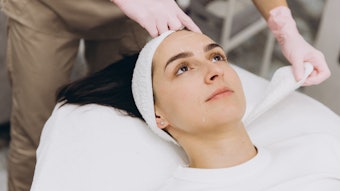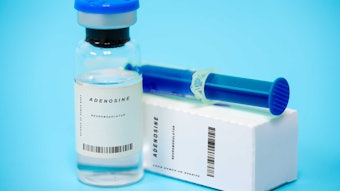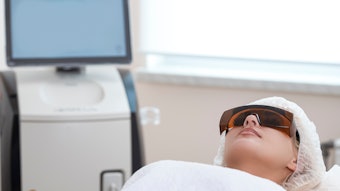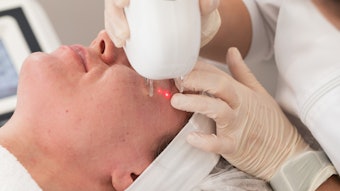
Abstract: History often is life’s greatest teacher, and this is proven when looking at the businesses that survived the Great Depression. By providing affordability along with repeatable, instantly enjoyable pleasures, Depression-era merchants found the keys to success ... and aesthetic physicians can capitalize by adapting their practices through history’s lessons in order to weather this economic storm.
OK, let’s get this out of the way—yes, the economy is in the toilet. As physicians, sometimes our attitudes get in the way of our ability to recognize the world around us. Just as we can’t let our pride get in the way of good medicine, we must keep our ego from ravaging good business.
Many businesses—including aesthetic practices—will not weather the crisis. Unfortunately, this bad economy is globally affecting all countries and classes. From Wall Street to Main Street, London to Dubai, Singapore to Hong Kong, everyone is feeling it. Those who have heard the tales from elder relatives who lived through the 1930s may be shocked to hear themselves referencing these same stories as they advise their kids and staff members to curb indulgences. Perhaps a look back is not such a bad idea.
Success during the Depression
You can best predict the future by looking at the past. The businesses that prospered during the Great Depression were known as the sin industries, with “sin” referring to alcohol, candy and cigarettes. Interestingly, in addition to the sin industries, another area that remained successful was the cosmetic industry, with many companies holding steady or expanding, including L’Oréal and Revlon.
The sin industries allow a temporary escape from reality, an ability to satisfy a guilty pleasure, and the key is immediate gratification. So, if a quick fix is important, than almost equally as important is affordability. Affordable pricing is essential to achieving maximum gratification and repeat business.
How do you feel after buying an item that makes you feel great; maybe a new article of clothing, a new watch or a new car? But how much better is it when that new item is inexpensive and immediate? If it is expensive or it involves an extended lag time until the benefit is achieved, there is a risk for buyer’s remorse and even worse, ill will toward the place from which it was purchased. The retail merchandisers that prospered during the Great Depression sold quick, repeatable pleasures at affordable prices.
Your practice and the economy
You may be considering going back to third party-payer insurance medicine if you are struggling to make ends meet as an aesthetic physician. Regardless of the recession, people are always going to be sick and need medicine. Colleagues who do general otolaryngology (ENT medicine) tell me they are still very busy, but are just starting to feel the reduction in elective procedures. It is likely that consumers who are watching their pennies are going to forego elective medical procedures in order to avoid taking time off of work and paying deductibles. Also, it is shortsighted to doubt that Medicare and insurance reimbursements won’t be affected.
So, although it currently seems like a safe haven to be back in general medicine, consider recession-proofing your practice as an alternative. It is prudent for all doctors and health-related businesses to start thinking differently about maximizing the efficiency and finances of their practices. Customer service, regardless of the field of medicine, is a front-and-center issue for more than just the aesthetic field. In fact, it is key issue for any service business.
New aesthetic physicians
Those who are just entering aesthetic medicine may be thinking twice about breaking into a competitive and depressed marketplace, but try not to be dissuaded. Yes, the demand for cosmetic procedures is down, but fresh, brave and ethical individuals should move forward.
There are inherent advantages to starting in a bad economy; for instance, there are fewer physicians starting in the field right now. When the economic situation turns around, you will be better situated as one of few in your contemporary age group to be established, ready and poised to explode.
Existing aesthetic physicians
If you are seeing a contraction of your existing practice, you are not alone, but now is the time to act fast in order to ensure that your practice thrives. Remember, the sin industries prospered during a down economy. Can aesthetic services parallel? Yes, today they can.
Products and services from aesthetic physicians include neurotoxins, fillers, facials and laser treatments that provide quick results and a relatively immediate improvement in mood. But price will matter now more then ever. As a business owner desiring a higher-end clientele, you will have to find a reason to bring value to your product in order to charge a greater price, and usually this means more convenience or a better experience. Otherwise, why would anyone spend two times the price for a cup of coffee? Starbucks promises you a better experience than Dunkin’ Donuts.
Lower-priced high-volume practices
Currently, many medical spas are failing. You might think that the affordable pricing and convenience this type of facility commonly offers would fulfill the criteria of a business that would succeed during a down economy. However, price by itself is only one component.
Medical procedures are still medical procedures, and a person exposes vulnerability when getting the procedure done. They may want a little assurance and are willing to spend a few bucks more at a doctor’s office for the perception of quality. Additionally, medical spas as volume businesses may struggle with maintaining customer service because it is often felt to be an expensive nonrevenue-generating investment. This couldn’t be farther from the truth, and with the state of the economy, going above and beyond with customer service is critical to maintaining and growing market share.
Increasing customer service can be done inexpensively, as will be detailed in upcoming “Thrive” columns. Additionally, for high-volume businesses, efficiency is critical. In order for the high-volume low-price strategies to work, it is crucial to emphasize customer service, maintain consistency in medical care providers and re-evaluate all business efficiencies. It is important to think like mice, not rats. Remember, mice always get their cheese, rats get exterminated, and in the next issue, I’ll explain the crucial difference between mice and rats, and what it means to you.
Editor’s note: Excerpts and material from this column are from the book Thrive: Pearls to Prosper in Any Economy by Steven H. Dayan, MD, FACS, and Tracy L. Drumm (College of Cosmetic Medicine Press, 2009).










